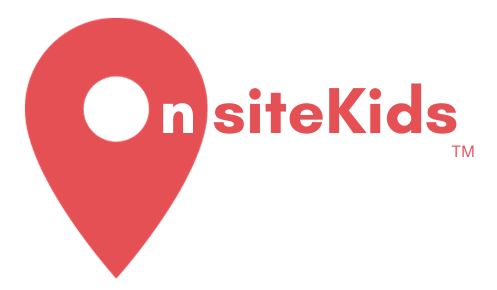Early Childhood Education: More Than Just Daycare
At OnsiteKids, we believe in the power of language and how it shapes perceptions. One term often used interchangeably with our services is "daycare." However, we prefer to use "early childhood education" (ECE) for a reason that goes beyond semantics. As one of our dedicated teachers aptly put it, "We don't care for days. We care for children."
The Difference Between Daycare and Early Childhood Education
The term "daycare" traditionally implies a place where children are watched over while parents are at work. It conjures images of basic supervision, perhaps some playtime, and ensuring the kids are safe. While these aspects are certainly important, they barely scratch the surface of what true early childhood education entails.
Early childhood education, on the other hand, focuses on the holistic development of children during their most formative years. It encompasses not only safety and supervision but also guided learning, emotional and social development, and nurturing children's natural curiosity.
The Importance of Early Childhood Education
According to a comprehensive explanation on EdNC.org, the distinction between daycare and early childhood education is critical for several reasons:
Developmental Impact: The first five years of a child's life are crucial for brain development. Quality early childhood education programs are designed to stimulate cognitive, emotional, and social growth, laying a strong foundation for lifelong learning and success.
Professional Educators: Early childhood educators are trained professionals who understand child development theories and practices. They create an environment that promotes learning through play, exploration, and guided instruction.
Playful Learning: ECE programs at OnsiteKids emphasize "Playful Learning," a philosophy that blends play with guided educational experiences. Our playful learning spaces are designed to engage children's natural curiosity and creativity, allowing them to explore and learn through play-based activities that foster literacy, numeracy, social skills, and emotional regulation. This approach ensures that learning is both effective and enjoyable, supporting the developmental needs of each child.
Family Engagement: ECE programs often include a component of family engagement, helping parents to continue the learning process at home and ensuring a cohesive approach to the child's development.
The OnsiteKids Approach
At OnsiteKids, we are committed to providing high-quality early childhood education tailored to the needs of today's frontline families. Our playful learning spaces, flexible offerings, and passionate, trained teachers are all part of our holistic approach to child care.
Our centers are designed to be more than just a place where children spend their day. We focus on creating enriching environments that foster growth, creativity, and learning. Our teachers are not just caregivers; they are educators who nurture and guide each child through their early developmental stages.
We believe that every child deserves the best start in life. By prioritizing early childhood education, we are not just caring for children while their parents work; we are investing in the future of our communities.
Conclusion
The words we choose matter. By using "early childhood education" instead of "daycare," we emphasize the importance of the developmental, educational, and emotional needs of the children in our care. At OnsiteKids, we are proud to be part of a movement that recognizes and values the profound impact of quality early childhood education on children, families, and society as a whole.
We don't just care for days; we care for futures. And that's a distinction worth making.
